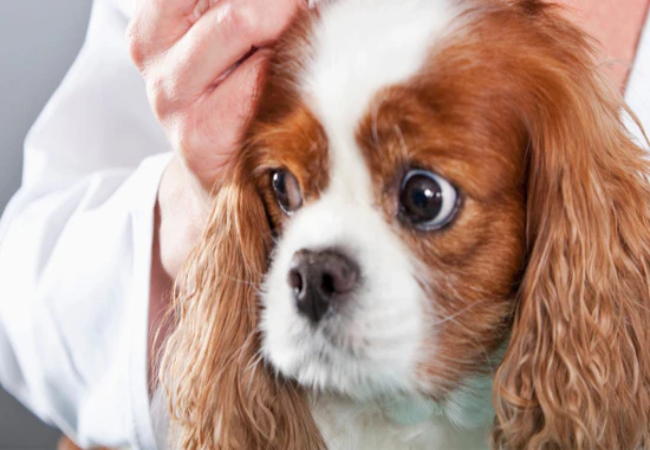Veterinary Guide to Canine Reovirus Infections 2025 🐶

In this article
Veterinary Guide to Canine Reovirus Infections 2025 🩺🐶
By Dr. Duncan Houston BVSc
🧬 What Is Reovirus?
Reoviruses are non-enveloped double-stranded RNA viruses in the Orthoreovirus genus, common in mammals, including dogs. Most canine cases are asymptomatic, but the virus can affect the gastrointestinal (GI) and upper respiratory tracts.
👥 Who’s at Risk?
- Puppies and immunocompromised dogs—more likely to show symptoms.
- Outdoor dogs and kennel populations—higher exposure risk.
- Adult dogs—often seropositive antibodies suggest widespread exposure, frequently without symptoms.
⚠️ Clinical Signs
- Diarrhea—usually mild and transient.
- Upper respiratory signs—rhinitis, conjunctivitis, sneezing.
- Inflammation of the nose and eyes; mild fever and lethargy are possible.
- Rare complications include pneumonia, encephalitis in severely affected dogs.
🌡️ How Does It Spread?
Transmission occurs via ingestion of infected feces or inhalation of airborne droplets. Reovirus is widespread—seropositivity in dogs ranges between 14–63%, increasing with age and outdoor exposure.
🔍 Diagnostic Approach
- History & exam: Check for diarrhea, sneezing, watery eyes, kennel exposure.
- Physical exam: Evaluate hydration, nasal/ocular discharge, and respiratory effort.
-
Diagnostics:
- Fecal viral testing to detect reovirus RNA or antigens.
- Bloodwork (CBC/chemistry) to rule out other diseases.
- Urinalysis—evaluate hydration and exclude concurrent illness.
- Chest X-rays or neuro exams if complications like pneumonia or encephalitis are suspected.
🛠️ Treatment Strategies
1. Supportive Care (Mainstay)
- Fluid therapy: Oral rehydration for mild cases; IV fluids if severely dehydrated.
- Nutrition: Bland, easily digestible meals (e.g., chicken & rice or GI diet).
- Rest & monitoring: Keep warm, monitor stools and behavior.
2. Symptomatic Relief
- Cough suppressants: For persistent respiratory irritation.
- Eye & nasal care: Saline flushes; antibiotics if a secondary bacterial infection develops.
- Analgesics: Mild pain relief if respiratory efforts cause discomfort.
3. Treat Complications Promptly
- Pneumonia: Antibiotics and oxygen therapy if needed.
- Neurological signs: Hospitalization and supportive/neuroprotective care.
📈 Prognosis & Follow-Up
- General outlook: Excellent—most recover in few days to a week.
- Pneumonia/encephalitis cases: Guarded; prompt care improves outcomes.
- Follow-up: Recheck physical exam, hydration, and resolution of signs.
- Repeat chest X-ray: If pneumonia complications.
🏡 Home Care & Prevention
- Isolation: Keep infected dogs away from healthy pets during recovery.
- Hygiene: Disinfect surfaces with virucidal agents, wash hands thoroughly.
- Environmental care: Clean kennels daily, prevent overcrowding.
- No vaccine exists—focus on hygiene and exposure control.
📱 Ask A Vet Telehealth Support
- 📸 Owners share stool or discharge photos for remote triage by Dr Houston.
- 🔔 Receive reminders for hydration, medication, and monitoring schedules.
- 🩺 Video checks assess respiratory effort and appetite.
🎓 Case Spotlight: “Max” the Pup
Max, an 8-week-old terrier from a crowded shelter, developed watery diarrhea and sneezing. Physical exam revealed mild dehydration and nasal discharge. Fecal antigen confirmed reovirus. Supportive fluids, bland diet, and isolation led to full recovery in 5 days. Owners used Ask A Vet for remote updates and delivered oral electrolytes and probiotic supplements. Max was back to playful in just one week! 🌟
🔚 Key Takeaways
- Reovirus infections in dogs are usually mild GI or respiratory illnesses.
- Signs include diarrhea, rhinitis, conjunctivitis, and mild fever.
- Diagnosis focuses on clinical signs, fecal antigen/PCR, and ruling out other pathogens.
- Supportive care—including fluids, nutrition, and rest—is the main treatment.
- Prevention relies on isolation, hygiene, and minimizing exposure—no vaccine is currently available.
- Ask A Vet telehealth provides caregivers with remote monitoring, medication reminders, diet planning, and home delivery of essentials 📲🐾
Dr Duncan Houston BVSc, founder of Ask A Vet. Download the Ask A Vet app today to support your dog through recovery from reovirus—in-clinic diagnostics, remote monitoring, dietary guidance, and medicine delivery from Purrz 🐶📲






